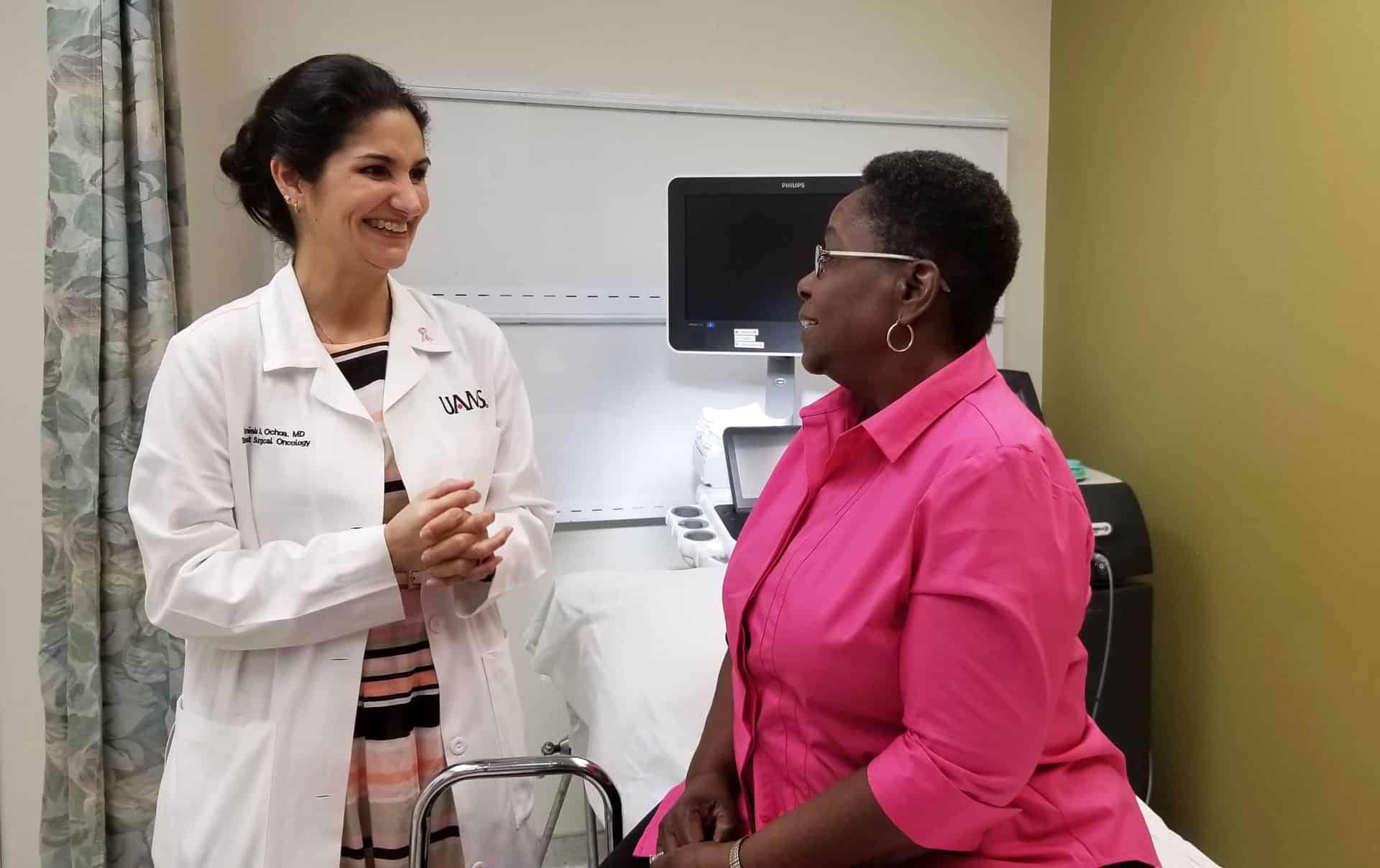Breast Cancer Didn’t Steal Little Rock Woman’s Zeal for Life
| Oct. 12, 2017 | The past year and a half has included many challenges for Josephine Guiden — being diagnosed with cancer, then chemotherapy, surgery and radiation treatments— but none of them have snatched her passion for life.
“There’s power in knowing you have to be positive about life,” said the 70-year-old Little Rock resident. “You only come this way once and you have to make the best of it while you’re here.”
Guiden’s taxing journey began in May of 2016 when she discovered a knot in her breast under her right arm. She recognized immediately it could be cancer.
“It was shocking, but through years of mammograms and exams, physicians tell you what the knot will feel like,” she said. “You don’t quite get it then, but when I felt that knot, I knew it was malignant. I knew it was cancer.”
She called her doctor and had a previously scheduled mammogram moved up, but in the meantime, went on a bus trip to New York with the Patrick Henry Hays Senior Center in North Little Rock.
“I had lots of fun,” she said, “but my energy level was low.”
When she returned, her mammogram and biopsy confirmed what she already suspected: breast cancer. However, at stage 3 it was more advanced than she expected.
“There was anxiety and fear when it was confirmed and it was so advanced that I was upset with myself,” she said. “Even though I expected the diagnosis, I came home afterwards and had a good cry. But I knew I had to stay positive, I had to pray about the situation and that’s what I did. I told God, ‘I choose life. I want to live.’”
She was shepherded through the next several months of treatment by Daniela Ochoa, M.D., breast surgeon in the UAMS Winthrop P. Rockefeller Cancer Institute and assistant professor of surgery in the Division of Breast Surgical Oncology in the UAMS College of Medicine; Issam Makhoul, M.D., director of the UAMS Division of Hematology/Oncology and associate professor in the College of Medicine; and Loverd Peacock, M.D., radiation oncologist in the Cancer Institute and faculty member in the Department of Radiation Oncology in the College of Medicine.
“They were my guardian angels,” said Guiden. “I was placed in the midst of three great doctors who made me feel so special that no one could have ever convinced me that I wasn’t their favorite patient.”
Ochoa said the whole-team approach is one of the benefits to breast cancer treatment at UAMS.
“We have specialists who practice only in breast cancer — from radiologists and oncologists to geneticists, pathologists and behavioral health specialists,” said Ochoa. “We have team members who work closely in managing breast cancer patients and are able to provide a consensus opinion, and our patients benefit from that.”
A few days after her diagnosis, Guiden received her port for chemotherapy treatment. The first series of treatment lasted 12 weeks. In the three-week hiatus between her first and second rounds of chemotherapy, she took another cross-country bus trip. This time to Martha’s Vineyard in Massachusetts.
She began her second round of chemotherapy the day after she returned and completed it just before Thanksgiving. On Dec. 27, she had a lumpectomy, a surgery to remove the tumor, performed by Ochoa. Then she received radiation treatment for five weeks from Peacock.
Throughout her treatment regimen, Guiden says she relied on her faith, family, friends and fellow church members at St. John Missionary Baptist Church in Little Rock for support.
There was her Sunday School teacher who gave her a scripture after her diagnosis, Psalms 117:17-18, that she carried with her daily; countless prayers with her Sunday School class; her two sisters and a close friend who stopped by often to help with household chores and cooking; her son who did yard work; and her brothers who helped make sure she didn’t miss a family reunion gathering.
“I was surrounded by a wonderful group of people that supported me,” she said.
In May, one year after her diagnosis, Guiden had another mammogram performed. She was cancer free. Guiden could barely contain herself when she saw Ochoa following the exam.
“I just grabbed her and almost picked her up off the floor,” she said. “I was so happy to have the relief. There was quite a bit of anxiety prior to the mammogram because you don’t know what to expect or what will be there.”
Ochoa said Guiden’s story conveys the importance of monthly self-examinations.
“I’ll often hear patients say they don’t know what they’re feeling for, but the idea is to be familiar so something new will stand out and feel different. The monthly interval is important because it’s enough of a timeframe that you’ll notice a difference if it occurs.”
Looking back, Guiden sees that importance, too.
“It’s so important to do self-exams,” she said. “If I had done that, I would have found this sooner, but I stopped. That was the culprit, me not taking stock in myself and my well-being.”
